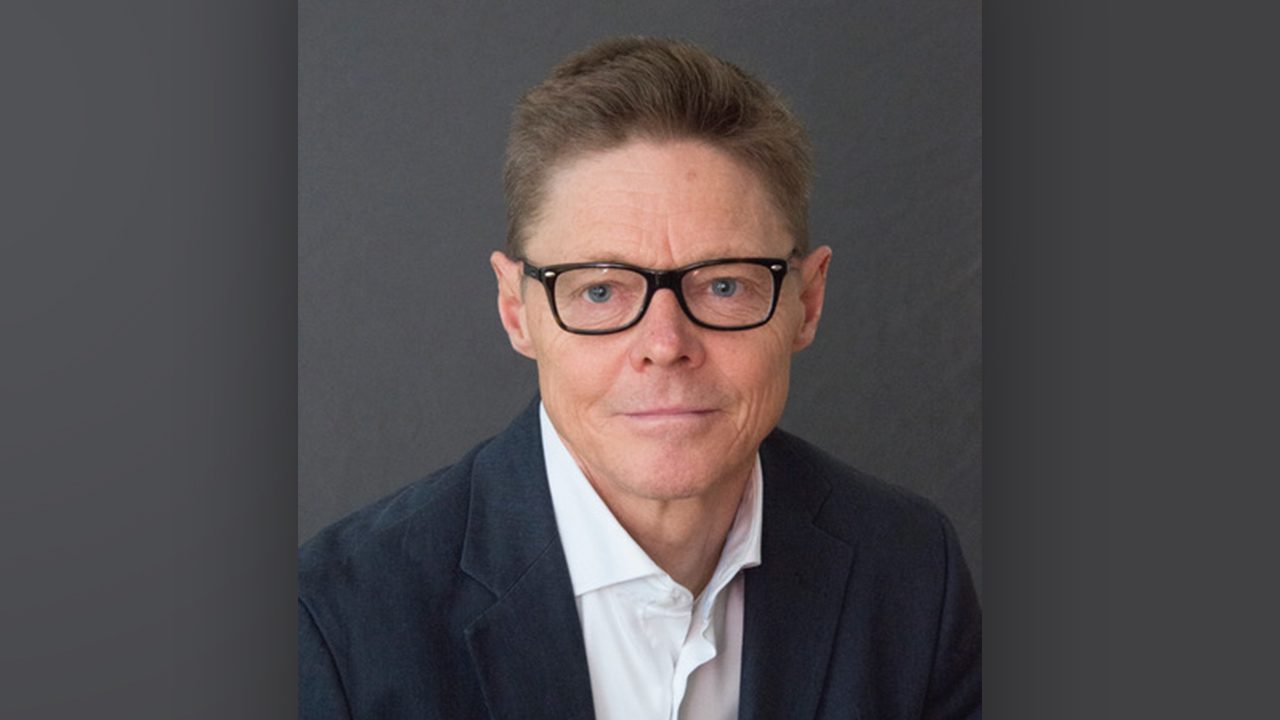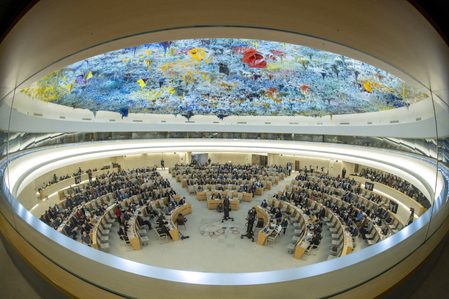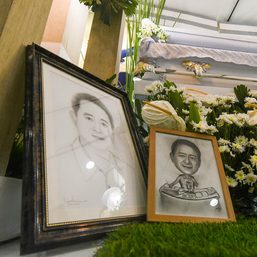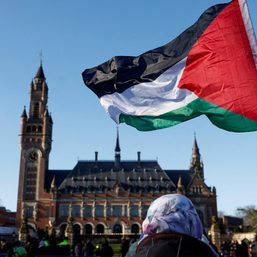SUMMARY
This is AI generated summarization, which may have errors. For context, always refer to the full article.

MANILA, Philippines – United Nations expert Morris Tidball-Binz will be in the Philippines starting Monday, February 6, to reportedly help improve the capabilities of law enforcement bodies in investigations.
Tidball-Binz was appointed UN special rapporteur on extrajudicial, summary, or arbitrary executions on April 1, 2021, becoming one of the 45 independent experts focused on a thematic mandate. He replaced former rapporteur Agnes Callamard, who had been threatened by Duterte over her statements against the violent drug war.
Tidball-Binz has at least 35 years of experience in forensic science, according to his profile at the UN website. The Chilean-born medical doctor has worked in over 70 countries, where he conducted fact-finding and capacity-building missions, among others.
His expertise covers the use of forensic science in investigating and documenting human rights violations, including extrajudicial killings, enforced disappearances, and torture. He has also contributed to humanitarian action in relation to armed conflicts and natural catastrophes.
What else do we need to know about Tidball-Binz?
Not in the Philippines as special rapporteur
Tidball-Binz’s visit comes as forensic pathologist Dr. Raquel Fortun released the results of her latest examination on the remains of Kian delos Santos, the 17-year-old who was killed by police during an anti-illegal drug operation in 2017. Fortun’s previous examinations of other remains showed that doctors falsified the death certificates of drug war victims, indicating that they died from natural causes when in fact they were shot dead.
But Tidball-Binz will not be visiting the Philippines to conduct an investigation into the drug war killings under Duterte, which had reached at least 6,252 during police operations alone by May 2022. Tidball-Binz, instead, is set to conduct training for law enforcement bodies and meet with key government officials.
The Department of Justice (DOJ) on Sunday, February 5, said that Tidball-Binz’s presence is in his capacity as an expert in forensic pathology, not as a UN special rapporteur. Justice Secretary Jesus Crispin “Boying” Remulla said that his visit will “help us identify the intricacies of wrongful death tragedies.”
Human Rights Watch (HRW) senior Philippine researcher Carlos Conde said making that clear distinction about Tidball-Binz’s visit is “crucial because of the way the [government], particularly the DOJ, tried to spin it” earlier.
DOJ spokesperson Mico Clavano on February 30 explicitly said that the Philippines invited Tidball-Binz to visit, look at processes, and check where investigations are going. He said this to attack the decision of the International Criminal Court (ICC) to resume its probe into the drug war killings under Duterte, adding that the court’s move is ill-timed since the Philippine government is already cooperating with the international community.
“The intention is clear: to give the impression that the ICC investigation is not needed hence it should be rejected,” Conde said. “It is disingenuous, if not cynical.”
If Tidball-Binz is to conduct a fact-finding mission, he needs an official invitation from the Philippine government. According to the UN website, these missions allow experts to “assess general human rights situations in a given country, as well as specific institutional, legal, judicial, administrative, and de facto situations under their respective mandates.”
“The [special rapporteur]’s country visits to take specific investigative action is governed by terms of reference that the UN and the Philippine government should agree on,” Conde said.
“The government cannot dictate those terms, it cannot constrain the [UN expert] on what to do here, what leads to pursue, who to talk to,” he added.
A quick look at the database shows that the Philippines is not one of the 128 member-states that have extended a standing invitation to UN special rapporteurs. According to the UN website, a standing invitation means that the member-state “will always accept requests to visit” from the UN experts.
The Philippine government has had a thorny relationship with the UN and its experts during the previous administration. Then-president Duterte cursed and called the UN useless and even threatened rapporteurs with violence.
Giving justice to families through forensic science
Tidball-Binz’s career can be traced back to Southern America, where he was instrumental in pioneering the vital role of forensic science in investigating abuses, especially at the height of military dictatorships.
In an interview with International Review of the Red Cross in 2017, Tidball-Binz said that he ventured into forensic science “quite by chance” as a medical student in 1984. He initially wanted to specialize in public health and family medicine, but a meeting with foreign forensic scientists who were helping families of missing people in Argentina changed everything.
“It was the families of the missing who had the vision and initiative which led to the development of pioneering forensic science,” he said in the interview. “Even though I was studying medicine and had other jobs, I accepted [the job], as I also had a commitment to human rights.”
He then started working for the Abuelas de Plaza de Mayo, an organization composed of grandmothers looking for their grandchildren who disappeared during the Argentine military dictatorship in the 1970s. An estimated 500 children were forcibly taken from their parents, according to human rights groups, during this period.
What sets the group apart is that it pushed for the use of grand-paternity testing instead of the usual paternity – using grandparents’ blood in forensic DNA testing – especially since parents were also abducted and forcibly disappeared during that time.
As part of his work with the grandmothers, Tidball-Binz took part in the creation of a database that used genetics to help find victims of enforced disappearances and their families.
“The grandmothers were seen and are still regarded as a truly exceptional group of women [and] I was very fortunate and honored to work for them,” he said. “In my opinion they deserve the full credit for the early development of humanitarian forensic action.”
Tidball-Binz then served as director of the Argentine Forensic Anthropology Team which, according to his UN profile, “pioneered the application of scientific methods to investigate serious violations of human rights and crimes against humanity.” He co-founded the group in 1984 and was its director until 1990.
He then went on to work directing programs of several human rights organizations from 1990 to 2003, including Amnesty International and the Penal Reform International in the United Kingdom, the Inter-American Institute of Human Rights in Costa Rica, and the International Service for Human Rights in Switzerland.
From 2004 to 2020, Tidball-Binz worked at the International Committee of the Red Cross (ICRC). He was instrumental in creating the organization’s Forensic Services and Unit, where he served as its first director. He has also worked on the ICRC’s Missing Persons project.
Aside from working with human rights organizations, Tidball-Binz also teaches in several medical schools in Australia, Portugal, and Italy. – Rappler.com
Add a comment
How does this make you feel?













![[The Slingshot] Lito Patay’s 4 hours and 38 minutes of infamy](https://www.rappler.com/tachyon/2024/07/Lito-Patay-4-hours-infamy-July-19-2024.jpg?resize=257%2C257&crop=233px%2C0px%2C720px%2C720px)






There are no comments yet. Add your comment to start the conversation.